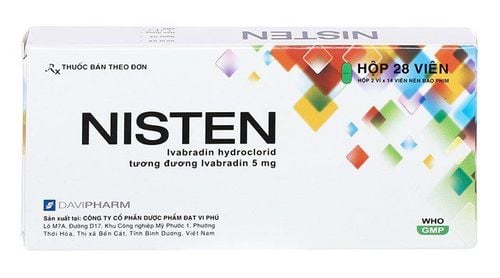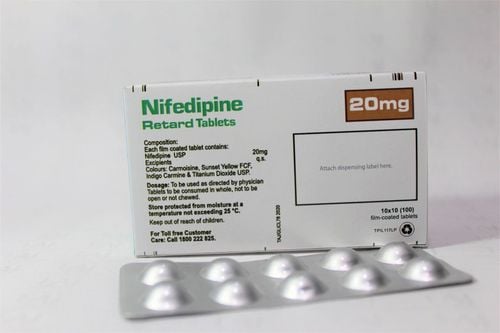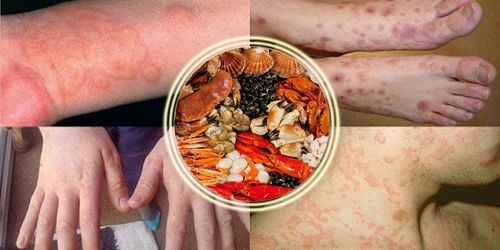This is an automatically translated article.
Fish oil has many health benefits. Besides preventing heart attacks and deaths from irregular heartbeats in people with coronary artery disease, fish oil also works to reduce triglyceride levels in the blood. So what ingredients make fish oil such an important nutrient?
1. General information about fish oil
Fish oil can be supplemented by consuming fish or taking supplements in capsule form. Certain types of fish are high in oil, such as mackerel, herring, tuna, and salmon. Two of the most important omega-3 fatty acids found in fish oil are eicosapentaenoic acid (EPA) and docosahexaenoic acid (DHA).
Fish oil offers many health benefits thanks to its omega-3 fatty acid composition. In fact, the human body cannot produce this nutrient on its own. Therefore, taking fish oil as a way to supplement omega-3 fatty acids for the body. In addition, omega-3 fatty acids have a role in reducing pain and swelling. This may explain why fish oil is so effective for psoriasis and dry eyes.
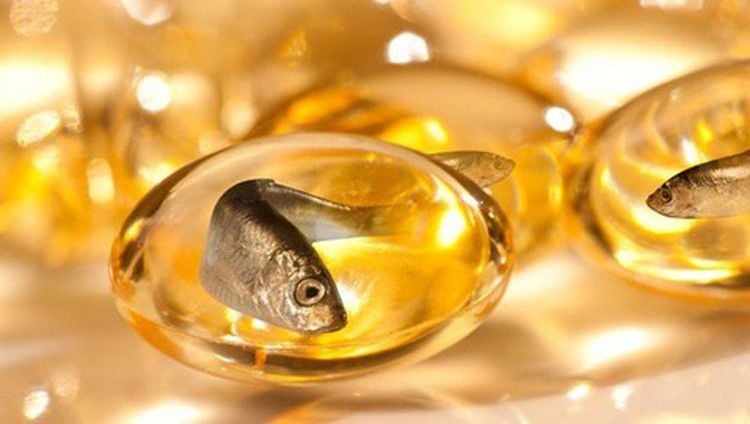
Dầu cá có thành phần omega 3 tốt cho cơ thể
2. Health benefits of fish oil
Based on the nutritional components of fish oil, experts have listed the benefits that fish oil brings as follows:
Fish oil is used to prevent and treat coronary heart disease. Previous evidence suggests that fish oil can reduce heart attacks and deaths from irregular heart rhythms Survival rates in pregnant women with antiphospholipid syndrome. Fish oil improves attention, mental function and behavior in children 8-13 years of age with attention deficit hyperactivity disorder (ADHD). Other research shows that taking fish oil and evening primrose oil supplements (Eye Q, Novasel) improves mental function and behavior in 7-12 year olds with ADHD. Taking fish oil along with conventional bipolar disorder treatments seems to improve symptoms of depression. Cancer patients should be prescribed high doses of fish oil to slow weight loss Cyclosporine is a drug that reduces the risk of organ rejection after transplantation. Take fish oil to prevent high blood pressure caused by this drug. Reduce symptoms of menstrual pain in women Reduce the risk of developing endometrial cancer. Fish oil supplements through food or pills both help reduce the risk of heart failure Fish oil has the effect of preserving kidney function and reducing long-term elevated blood pressure after heart transplant.

Uống dầu cá giúp làm giảm đau bụng kinh
Taking fish oil can also lower total cholesterol levels in people with HIV/AIDS. Slow down the rate of osteoporosis and increase bone density in the femur (femur) and spine in the elderly. However, taking fish oil does not slow osteoporosis in older adults with osteoarthritis of the knee. Fish oil given intravenously (by IV) can reduce the severity of psoriasis symptoms. Additionally, applying fish oil to the skin also seems to help some symptoms of psoriasis. Some research suggests that taking fish oil supplements may help prevent overall mental illness from developing in adolescents with mild symptoms. There is evidence that taking fish oil can improve cold tolerance in some people with Raynaud's syndrome. SEE ALSO: For healthy sperm, try a fish oil supplement
3. What is the dosage of fish oil?
3.1. For adults
Adults can use fish oil both orally and topically.
Orally
For patients undergoing a procedure to open blocked or narrowed blood vessels (angioplasty) 6 grams of fish oil per day starting one month before angioplasty and continuing for one month thereafter. Followed by 3 grams per day for the next 6 months. To prevent miscarriage in pregnant women with antiphospholipid syndrome, 5.1 grams of fish oil with a ratio of 1.5 EPA:DHA should be taken daily for 3 years. For attention deficit hyperactivity disorder (ADHD), patients can take a supplement containing 400 mg of fish oil and 100 mg of evening primrose oil at a dose of six tablets daily for 15 weeks. For bipolar disorder: Fish oil provides 6.2 grams of EPA and 3.4 grams of DHA taken daily for 4 months. Alternatively, patients can take 1 gram to 6 grams of EPA for 12-16 weeks or omega-3 fatty acids containing 4.4-6.2 grams of EPA plus 2.4-3.4 grams of DHA for 4- 16 weeks. For surgery to improve blood flow to the heart (CABG surgery): 4 grams of fish oil contains 2.04 grams of EPA and 1.3 grams of DHA per day for one year. For cyclosporin-induced high blood pressure: 3 to 4 grams of omega-3 fatty acids daily for 6 months after a heart transplant. 2-18 grams of fish oil per day for 1 to 12 months after a kidney transplant. For kidney damage caused by cyclosporine: 12 grams of fish oil per day is used for 2 months after a liver transplant. In addition, 6 grams of fish oil per day for 3 months after a kidney transplant. For dysmenorrhea: Daily dose of 1080 mg EPA and 720 mg DHA plus 1.5 mg vitamin E daily for 2 months. Alternatively, you can use 500mg - 2500mg of fish oil per day for 2-4 months. For heart failure: 600 mg to 4300 mg of omega-3 fatty acids daily for 12 months. For complications after a heart transplant: 4 grams of fish oil containing 46.5% EPA and 37.8% DHA per day for 1 year. For abnormal levels of blood fats in people with HIV/AIDS: Two specific fish oil supplement capsules (Omacor, Pronova BioPharma, Norway) contain 460 mg EPA plus 380 mg DHA twice daily within 12 weeks.
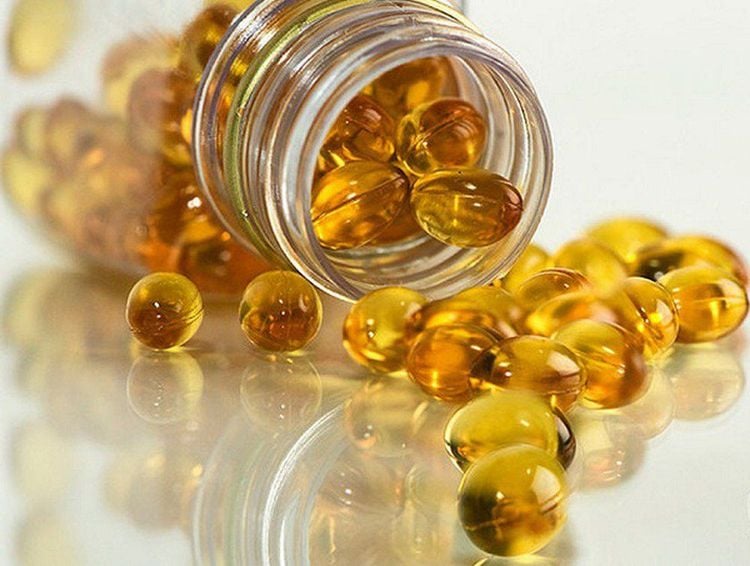
Tùy vào mục đích sử dụng mà dầu cá có liều lượng sử dụng khác nhau
For high blood pressure: 4 to 15 grams of fish oil per day, taken once or in divided doses for 36 weeks. Additionally, 3g-15 grams of omega-3 fatty acids per day for 4 weeks. For patients with osteoporosis: Four 500 mg capsules of a mixture of evening primrose and fish oil. The patient took 3 times a day with meals along with 600 mg of calcium carbonate for 18 months. For psoriasis: Fish oil capsules containing 3.6 grams of EPA and 2.4 grams of DHA daily for 15 weeks along with UVB therapy. For mental disorders: Fish oil capsules containing 700 mg of EPA and 480 mg of DHA combined with tocopherols and other omega-3 fatty acids daily for 12 weeks. For Raynaud's syndrome: Daily dose of 3.96 grams of EPA and 2.64 grams of DHA for 12 weeks. For rheumatoid arthritis (RA): 10 grams of fish oil daily for 6 months, or fish oil containing 0.5-4.6 grams of EPA and 0.2-3.0 grams of DHA. You can combine with vitamin E 15 IU daily for 15 months. External use
Fish oil is also used mainly for psoriasis. Psoriasis patients will apply fish oil for 6 hours a day. This method is used for 4 weeks.
MORE: Reasonable fish oil supplements
3.2. For children
Children with motor skills disorder and clumsy symptoms should take fish oil 3 times a day. Use continuously for 3 months for children 5-12 years old. In fish oil will provide about 558 mg of EPA and 174 mg of DHA for the patient.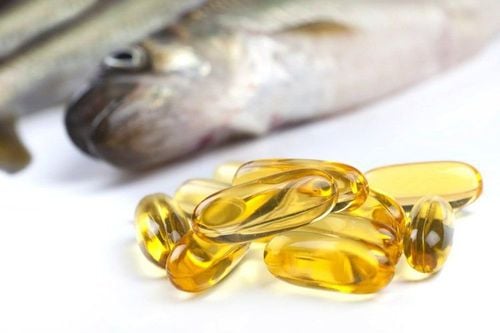
Trẻ em nên tuân thủ quy tắc uống thuốc của bác sĩ, dược sĩ
4. The side effects of fish oil
Although it offers many benefits and is safe when used in low doses, fish oil can still cause some unwanted side effects. Drinking more than 3 grams per day can prevent blood from clotting and increase the chance of bleeding.
High doses of fish oil can also decrease the activity of the immune system and the body's ability to fight infections. This is of particular concern to organ transplant patients and the elderly. Some of the side effects of fish oil such as:
Fish oil can cause side effects including belching, bad breath, heartburn, nausea, loose stools, rash and nosebleeds. When you take fish oil tablets with a meal or frozen they can often reduce these side effects. Certain meats like farm-raised shark, mackerel, and salmon can be contaminated with mercury and other industrial chemicals. Fish oil supplements usually do not contain these contaminants. Fish oil increases some symptoms of bipolar disorder. This nutrient will increase the risk of bleeding in people with liver scarring due to liver disease. Depression can be aggravated by high doses of fish oil. Fish oil has the potential to cause loss of blood sugar control in diabetics Some people who are allergic to seafood may also be allergic to fish oil supplements. To be on the safe side, patients with seafood allergies should avoid or use fish oil supplements with caution. In general, patients should only take high doses of fish oil under medical supervision and as prescribed by a doctor.

Hôi miệng là một tác dụng phụ của dầu cá
5. Possible drug interactions
Fish oil when used concurrently with some drugs can cause interactions or reduce the effectiveness of treatment drugs. Specifically:
Patients being treated for low blood pressure should not take fish oil because it can make the disease worse. Fish oil may increase the anticoagulant effect of warfarin. Therefore, people taking warfarin should avoid taking fish oil. Fish oil has the effect of reducing some levels of fat in the blood. These fats are called triglycerides. Birth control pills can decrease the effectiveness of fish oil by reducing the amount of this fat in the blood. Some birth control pills including ethinyl estradiol and levonorgestrel (Triphasil), ethinyl estradiol, and norethindrone Orlistat (Xenical, Alli) interact with fish oil: This is used for weight loss. It prevents dietary fat from being absorbed from the intestines. There is some concern that orlistat (Xenical, Alli) might also decrease the absorption of fish oil when they are taken together. To avoid this interaction, you should take orlistat (Xenical, Alli) and fish oil at least 2 hours apart. Fish oil has many health benefits. However, we need to supplement fish oil with appropriate doses, to avoid overuse to cause unwanted side effects.
Please dial HOTLINE for more information or register for an appointment HERE. Download MyVinmec app to make appointments faster and to manage your bookings easily.
References: merckmanuals.com, webmd.com






